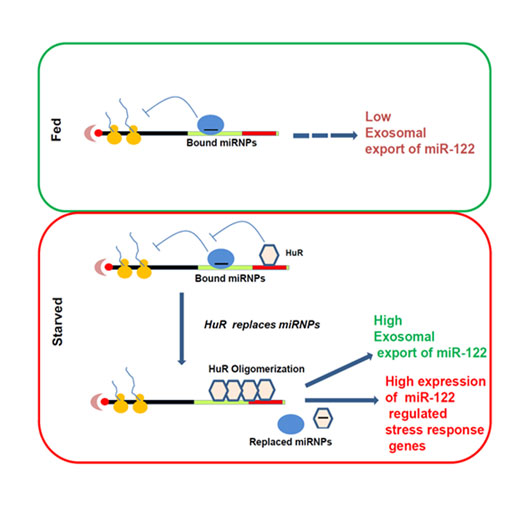In hepatic cells, metabolic stress due to deprivation of nutrients ensures upregulation of a stress responsive and RNA binding protein HuR that facilitates the export of microRNAs out of the cells as a strategy to combat stress related emergency. This is a new mechanism of gene expression regulation that Mukherjee et al. have now resolved and reported in a research article published in the August issue of the journal EMBO Reports. They have now identified new molecular targets, modulation of which could restrict the loss of microRNAs even in human cancer cells. Therefore, this work promises to provide new tools to fight against diseases like cancer where anomalous expression of microRNAs are often the cause of uncontrolled cell proliferation, the hallmark of cancer.

Figure: Stress induced export of miRNAs in human hepatic cells
Reference
Reversible HuR-microRNA binding controls extracellular export of miR-122 & augments stress response. Mukherjee, K., Ghoshal, B., Ghosh, S., Chakrabarti, Y., Swetha, S., Das, S. and Bhattacharyya, S.N. EMBO Rep (2016) e201541930.


































